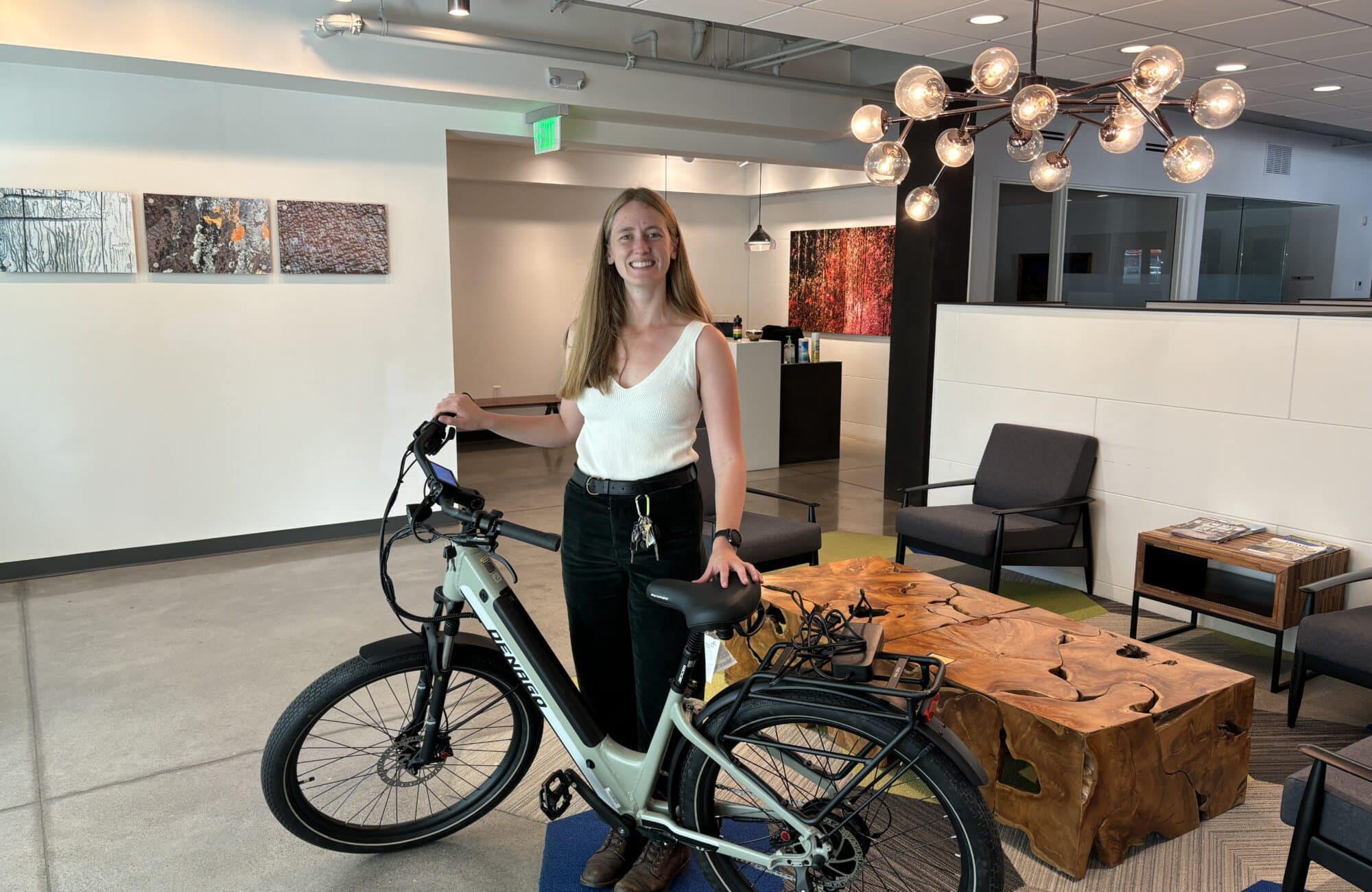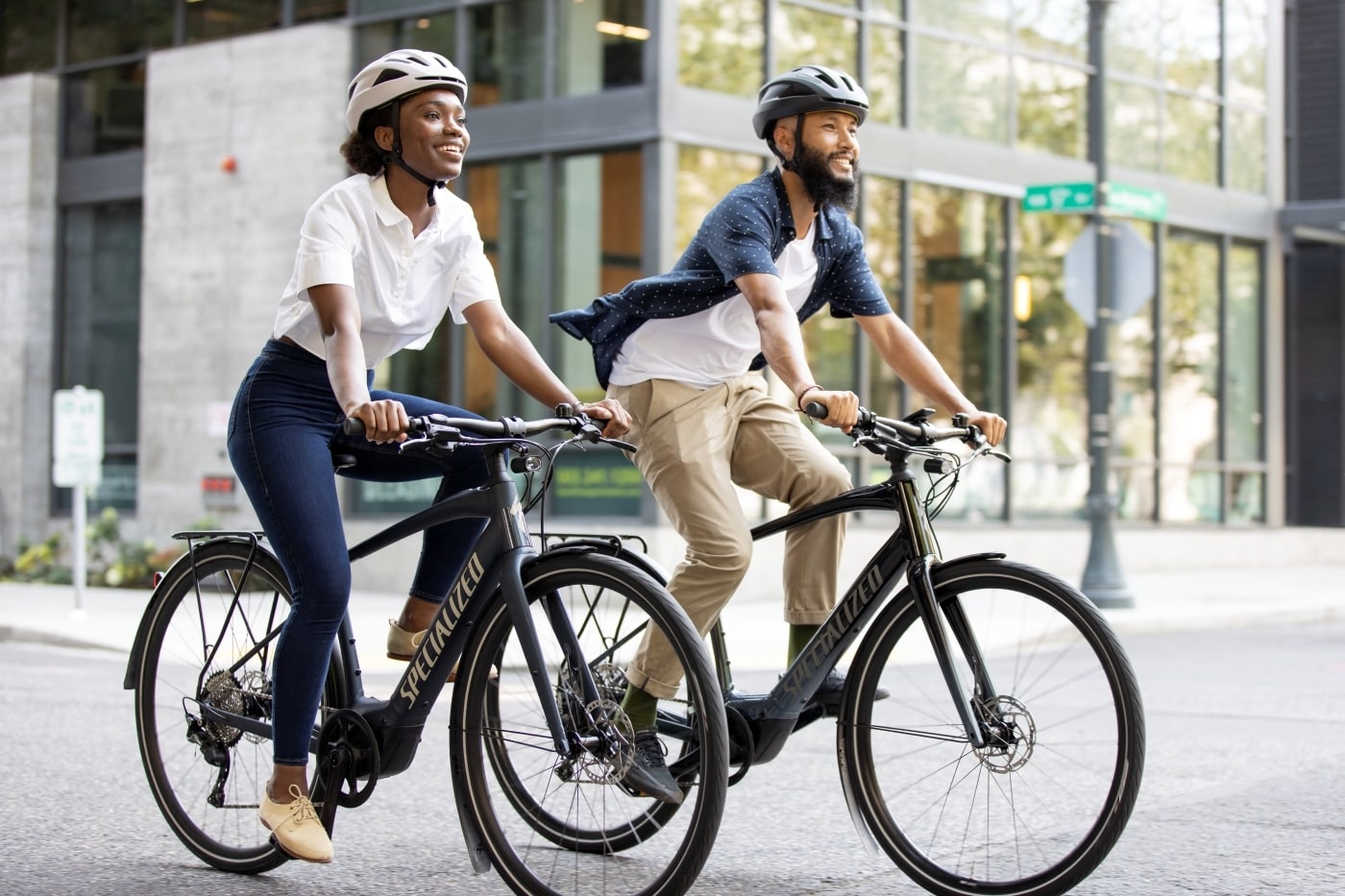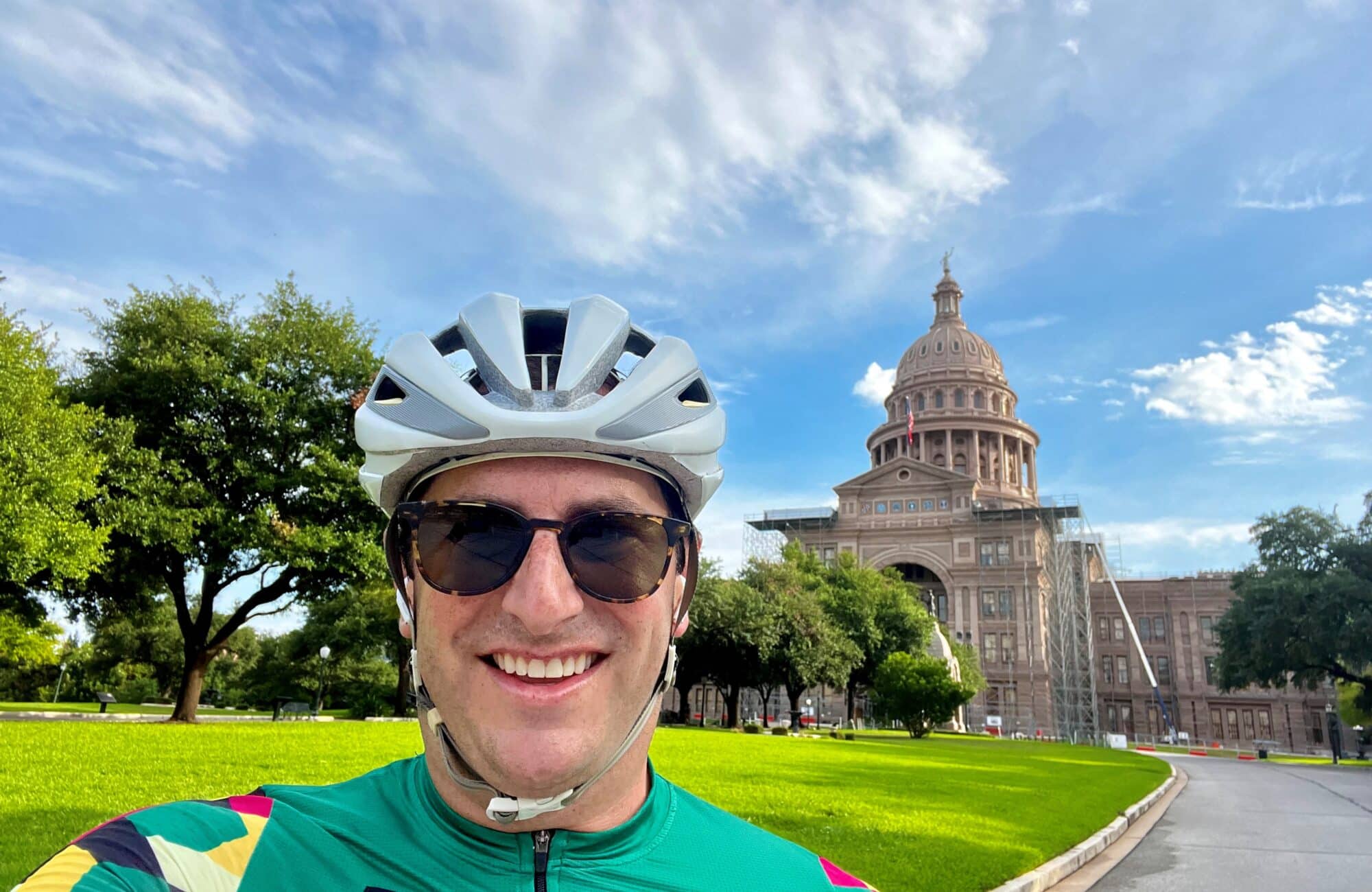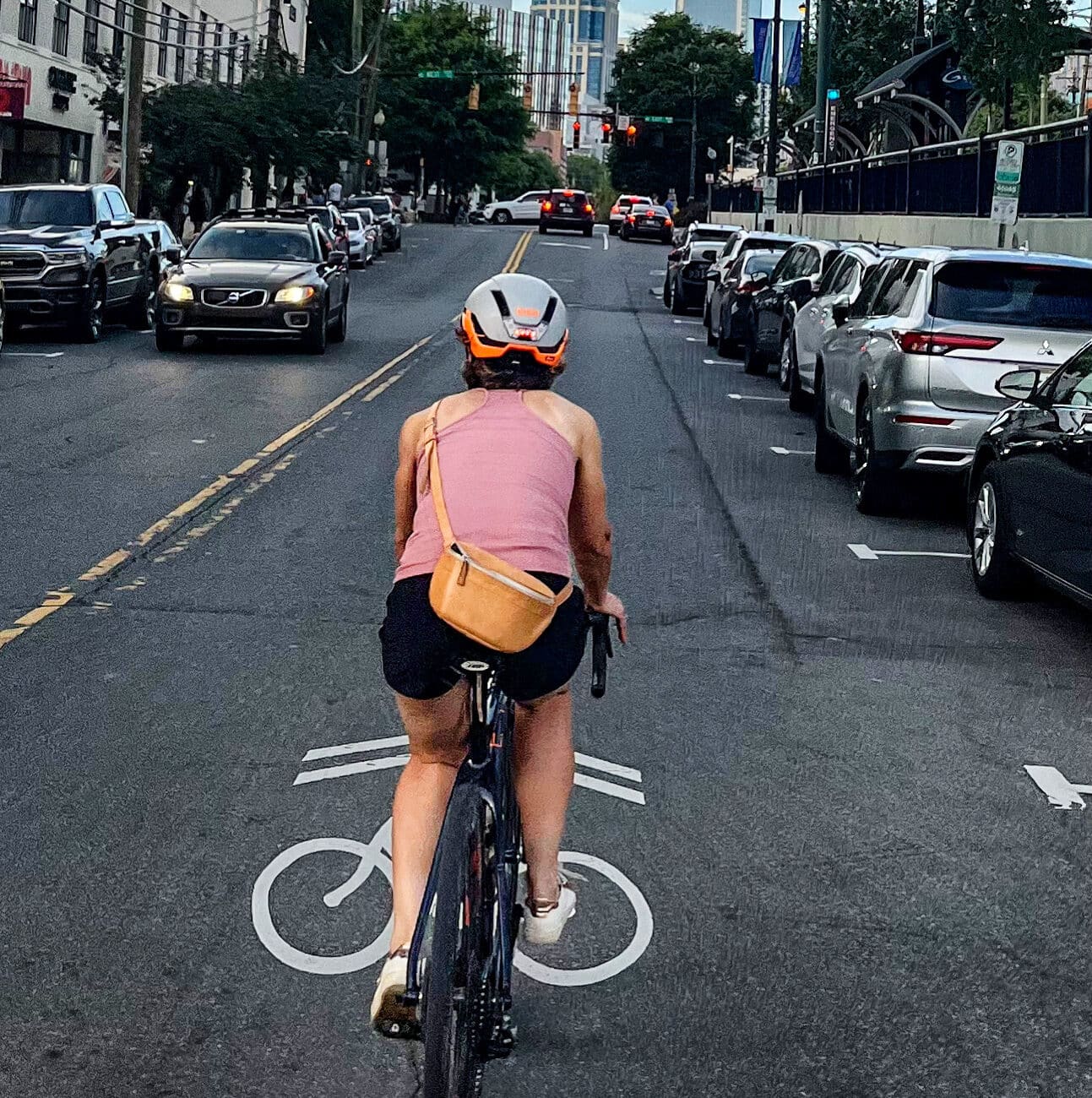Support of the Colorado Safety Stop Bill

Bike Law fully supports the Colorado Safety Stop Bill, Senate Bill 93, that was introduced by Senator Andy Kerr to rethink the “Operation Of Bicycles Approaching Intersections.”
Ridership in the United States is up across the board. Over the past 10 years choosing a bike for transportation has become less an alternative and a more regular choice for many. Yet across the United States, our infrastructure and culture of moving people from point A to B is still car dominate.
Recently, the Federal Highway Administration changed how they measure traffic from counting vehicles to counting individuals. Finally, we are focusing on moving people; options besides single occupancy vehicles are taking the main stage. Public transportation, biking, and walking effectively now matter more than ever before.
With this timely news from the FHWA, a Safety Stop bill was introduced earlier this month to the Colorado Senate. The Colorado Senate Bill 93 was introduced by Senator Andy Kerr to rethink the “Operation Of Bicycles Approaching Intersections.” This bill would change how cyclists handle intersections with stop signs or stop lights.
It is often referred to as the “Idaho Stop,” named after the state that first passed a similar law in 1982. To all the naysayers, the law works, and it has been shown in a University of California at Berkeley School of Public Health study that the year after the Idaho law passed there was a 14.5% reduction in cycling-related injuries in Idaho.
At Bike Law, we strongly believe in the Idaho Stop
This isn’t the first time we have brought it up. We bring up the Idaho Stop often because we believe in it.
- A year ago, our Idaho lawyer, Kurt Holzer, made valid points for the Stop as Yield – Idaho Stop.
- In 2012, our Illinois lawyer, Brendan Kevenides, wrote an article for Urban Velo.
- Our Oregon lawyer, Bob Mionske gave more background of the Idaho Stop in 2009.
The argument of infrastructure
The majority of intersections require a large metal object to trigger an inductive loop imbedded in the asphalt. Bicycles are not large metal objects. Riders with Team Evergreen and I have endured long waits at red lights until a car rolled up to trigger the light to change. A group can more easily stay together and would cause less delays to motor vehicle traffic if Senator Kerr’s bill becomes the law of Colorado.
Most lights are programmed in light cycles through monitored traffic counts, and various times of day. The length of time an average cyclist takes to cross an intersection is not typically part of these traffic counts. The grade, length of intersection, and number of cyclists trying to cross per light cycle are not often part of the light cycle formula.
In some forward thinking cities, there are green boxes placed at the head of an intersection to allow bikes to be in front of the traffic to get a head start across the intersection, and a custom light trigger in the asphalt within the green box sensitive enough for a bike to activate. These are rare, and typically in the more progressive cycling friendly cities.
The argument of different vehicles
Bikes are not cars, yet the laws to keep cyclists and motorists safe view them as the same thing. It takes a bicycle significantly more time to get started from a foot down stop to get started and cross an intersection. Leaving them hidden besides moving vehicles and blinded from the left turning vehicles looking for an opening in traffic.
As the Colorado Bike Law attorney, and the past President of Team Evergreen Cycling, I believe that cyclists should be able to keep their momentum and get out of the way of motor vehicles. For example, the proposed bill will allow cyclists to more quickly clear the intersection for cars who want to turn.
The argument of respecting laws and stopping when necessary
Once instituted, the next step would be in educating riders how to follow the law. In an earlier article on Bike Law, Kurt Holzer outlined the following behavior under the law.
When a cyclist approaches a stop sign, he or she should:
- Slow down and stop if required for safety;
- Yield the right-of-way to any motor vehicle in the intersection or any approaching vehicles that will create a hazard if the cyclist crosses the intersection; and
- Continue after appropriately slowing and yielding without stopping.
Allowing cyclists to do this is really about conservation of energy and recognizing the differences between bikes and cars.
When a bicyclist approaches a red light, he or she should:
- Stop;
- Yield to all other traffic; and
- Proceed through the red light with the appropriate caution.
Argument of Safety Over Tickets
In Colorado there are several smaller towns that are popular with cyclists that have taken to ticketing those rolling stop signs as a source of income. These towns have more to gain from being inclusive to cycling tourism, and encouraging riders from spending more time (and money) than giving tickets to yielding cyclists when there are no vehicles to be seen.
The Safety Stop law would allow our law enforcement to focus on safety and other top issues by eliminating the gray area of yielding cyclists.
Join Bike Law in support of the Safety Stop Bill in Colorado
The passing of the Colorado Bill 93 would be a strong push forward to creating the momentum to making the Idaho Stop a nationally accepted law.
- Learn more about the proposed Safety Stop Bill from Bicycle Colorado
- Sign the Bicycle Colorado petition
- Join Bike Law Colorado in Denver on February 7 at 1:30 pm in the Senate Conference Room 352 (Third Floor of the Capitol) to show your support and to start the momentum to roll across the country
Illustration Credit: Andy Singer

Colorado bicycle accident lawyer Brian Weiss is an accomplished trial lawyer with over 26 years of experience, and he has tried over 40 jury trials. Aside from having been in a bike crash himself, Brian has counseled over 200 people who have been in bike crashes.
Download and share Brian’s E-Book: The Rules Of The Road For Colorado Cyclists.
-
From Winner to Advocate: One Cyclist’s E-Bike Journey
Two years ago, on a family trip to Switzerland, my wife and I rented two electric-assisted mountain bikes, or e-MTBs, to tackle some steep trails near the Matterhorn. The salesperson said, in no uncertain terms, that the new e-MTBs were the way of the future, and we should give them a try. So we did. …
-
A Comprehensive Guide to E-Bikes in Louisiana: Laws, Tips, and Choosing the Best E-Bike
E-bikes are popping up everywhere. If you’re riding one in Louisiana or thinking about getting one, you may have questions about the laws, safety tips, and how to pick the right bike. That’s exactly what this post is here for! We’ll break down what you need to know about riding e-bikes in Louisiana, from legal…
-
The Lisa Torry Smith Act: A Win for Cycling Safety in Texas?
The Lisa Torry Smith Act brings important changes to Texas law. It makes clear that cyclists can ride in crosswalks and now requires drivers to stop and yield before entering a crosswalk with a pedestrian or cyclist. A gap in Texas law is allowing some drivers who hit people in crosswalks to get off scot-free,…
-
Far Right?! I was taking a LEFT!
Even Bike Law lawyers get hassled. Like many of us, riding for me is stress relief; it’s an escape from conflict and a busy schedule. Sometimes incidents on the road have the opposite effect and one incident this weekend made me question the state of humanity. It was not an unusual event, nor a particularly…
-
E-BIKES ARE LEGAL IN NC (WELL, SOME OF THEM)
Love them or hate them, e-bikes continue to rise in popularity. At the same time, lawmakers struggle to keep up with the developing technologies. Every week I get multiple inquiries from people trying to navigate North Carolina’s e-bike laws. If you’re confused, you’re not alone. We could easily fill a book with all the latest…
-
BIKES & CRIMINAL JUSTICE
Many of our cycling clients find themselves having to interact with the criminal justice system. Typically, it’s because the driver who hits them (or their family member) is charged with a crime or traffic offense. Occasionally bicyclists themselves are charged with traffic offenses! Every state’s criminal laws are different, but there is a lot of…
-
Another Successful Road Defect Case, This Time a $750,000 Settlement in Georgia
We recently shared the story of a trial victory from the State of Texas where a bicyclist was injured due to a defect in a road maintained by the Texas Department of Transportation. Texas Road Defect We now can tell the story of another huge win in a road defect case, this time from our Bike Law…
-
One Million Dollars for Texas Road Defect
The Texas Department of Transportation had offered cyclist Mike Bagg $0. Recently, attorneys with the Bike Law network took a case to a trial against a titan of a defendant: the Texas Department of Transportation. TxDOT was represented by the Attorney General’s Office, one of Texas’ largest legal teams. We had a great client, but it was…
-
More Roads = Better Transportation, And Other Myths
2023 got off to a rough start for Charlotte, North Carolina, particularly in the context of road safety. Within about a week, we lost a young woman who was riding her bicycle, a pedestrian killed in the same area of town, and four people were killed in a car wreck on I-85 in the University…










